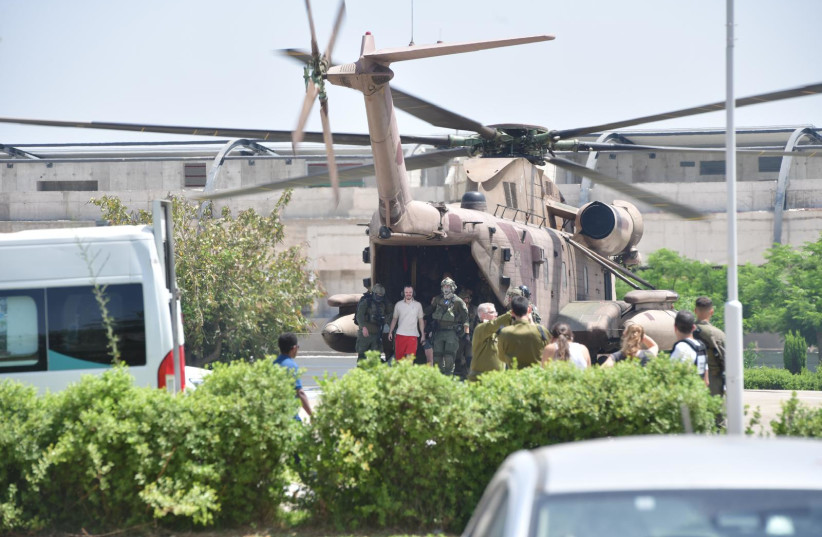After almost nine months in captivity, hostages Noa Argamani, Shlomi Ziv, Almog Meir, and Andrey Kozlov have been rescued by the Israel Defense Forces (IDF).
They are currently undergoing medical examinations at Sheba Medical Center in Tel Hashomer. Over the coming days, the former hostages will undergo comprehensive medical assessments to evaluate their health status, injuries, suspected sexual assaults, and nutritional deficiencies.
Medical procedure
According to Health Ministry protocol, the treatment of hostages is conducted in separate areas. Each one receives their own room and is accompanied by a nurse, doctor, and social worker.
Initially, they undergo a general physical examination, which includes an assessment of their overall condition, injuries and bruises, and a head-to-toe physical examination.
Blood tests and further examinations
The hostages also undergo general blood tests, typically including a complete blood count to detect infections, hemoglobin deficiency due to iron deficiency or bleeding, platelet count, and chemistry tests for nutritional deficiencies or electrolyte imbalances.

Liver and kidney function tests are also conducted, alongside additional blood tests, to detect vitamin D deficiency. This essential nutrient's levels can drop significantly after prolonged periods of darkness.
Orthopedic examinations and, if necessary, X-rays or CT scans are also part of the medical evaluation.
Chronic illnesses
Hostages suffering from chronic illnesses undergo general examinations by a specialist. Some of the hostages entered captivity with such diseases, and urgent follow-up tests are conducted to determine if there has been any deterioration in their condition.
Additionally, medications that were not administered during captivity will be readministered as needed.
The examinations include discreet testing for possible sexual assault involving a gynecological exam and the collection of samples that may indicate such an assault.
Female hostages are also likely to undergo pregnancy tests. Throughout the process, each hostage is accompanied by a hospital social worker to assess their psychological distress. If necessary, a psychiatrist or psychologist is called in for evaluation.
The psychological and social support continues throughout their hospitalization and after discharge.
Support from family
Family members of the hostages are asked to bring personal items to the hospital – clothing, books, shoes, favorite foods, and anything else that might help them return to normal life.